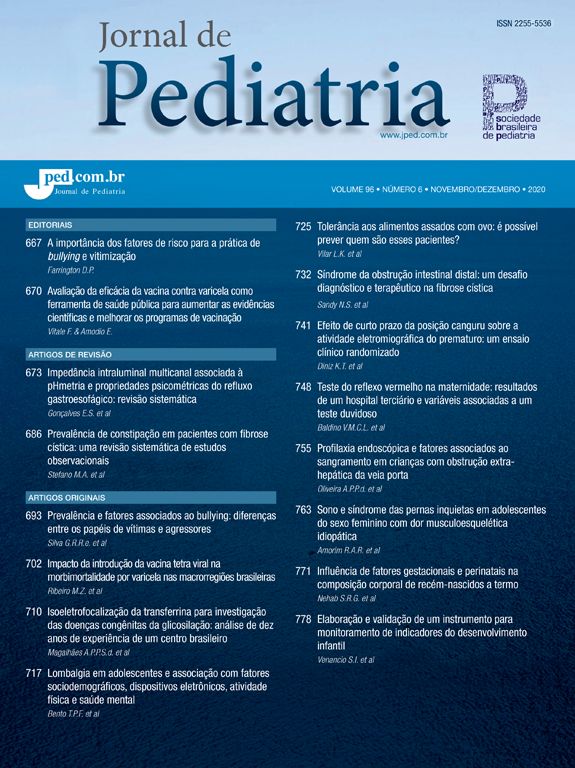To elucidate the benefits of using probiotics in the prevention of necrotizing enterocolitis (NEC) and its complications in preterm newborns.
MethodThis was a systematic review of randomized controlled trials, which included studies retrieved from three databases (MEDLINE, Embase, and LILACS), using a combination of the terms (necrotizing enterocolitis) AND (probiotics).
Results11 randomized trials were included, totaling 2,887 patients, 1,431 in the probiotic group and 1,456 in the control group. There was a reduction in the incidence of NEC (NNT=25), overall death (NNT=34), and neonatal sepsis (NNT=34) in the probiotic group compared to the control group. Patients that received probiotic supplementation had lower food reintroduction time (p<0.001) and hospitalization time (p<0.001) when compared to those not receiving probiotics. There was no difference in mortality caused by NEC.
ConclusionIn premature newborns, the use of probiotics is effective as a prophylaxis for NEC and its complications.
Elucidar os benefícios do uso de probióticos na prevenção de enterocolite necrosante (ECN) e de suas complicações em recém-nascidos prematuros.
MétodoRevisão sistemática de ensaios clínicos randomizados, que incluiu pesquisas efetuadas em três bases de dados (MEDLINE, EMBASE e LILACS), utilizando a combinação dos termos (necrotizing enterocolitis) AND (probiotics).
ResultadosForam incluídos 11 ensaios clínicos randomizados, totalizando 2.887 pacien- tes, sendo 1.431 no grupo Probiótico e 1.456 no grupo Controle. Houve redução na incidência de ECN (NNT=25), de morte global (NNT=34) e sepse neonatal (NNT=34) no grupo Probiótico em relação ao grupo Controle. Pacientes alimentados com suple- mentação de probióticos tiveram tempo de reintrodução alimentar (p<0,001) e de hospitalização (p<0,001) menor quando comparados aos que não receberam. Não houve diferença na mortalidade causada por ECN.
ConclusãoEm recém-nascidos prematuros, o uso de probióticos é eficaz na profilaxia de ECN e de suas complicações.
Please, cite this article as: Adde FV, Alvarez AE, Barbisan BN, Guimarães BR. Recommendations for long-term home oxygen therapy in children and adolescents. J Pediatr (Rio J). 2013;89:6–17.








